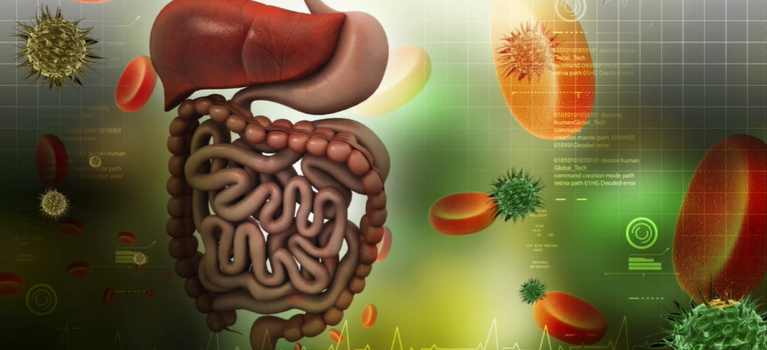The Connection Between Digestion and Your Immune System
How to Keep Your Gut Healthy

Your digestive system is more than just a pathway for food; it's a critical hub for your overall health, particularly your immune system. Understanding how these systems interact and how to maintain gut health can significantly boost your well-being. Let's dive into the fascinating relationship between digestion and immunity and explore practical tips for a healthy gut.
The Gut-Immune System Connection
The Gut as an Immune Organ:
- The gut is home to approximately 70% of the body's immune cells. This makes it the largest immune organ in your body.
- The intestinal lining acts as a barrier, protecting against harmful pathogens while allowing beneficial nutrients to pass through.
Microbiome and Immunity:
- Trillions of microorganisms, including bacteria, viruses, and fungi, reside in your gut, collectively known as the gut microbiome.
- These microbes play a crucial role in training and regulating the immune system, helping it distinguish between harmful invaders and benign substances.
Inflammation and Gut Health:
- A healthy gut can prevent chronic inflammation, which is linked to various diseases, including autoimmune disorders, obesity, and even depression.
- Imbalance in gut bacteria, or dysbiosis, can lead to a weakened immune response and increased susceptibility to infections and illnesses.
Tips for a Healthy Gut and Strong Immune System
Eat a Diverse Diet:
- Include a variety of fruits, vegetables, whole grains, lean proteins, and healthy fats in your diet. Different foods provide different nutrients and types of fibre that feed beneficial gut bacteria.
- Focus on foods rich in polyphenols, such as berries, nuts, dark chocolate, and green tea, which have antioxidant properties that support gut health.
Incorporate Probiotics and Prebiotics:
- Probiotics are live beneficial bacteria found in fermented foods like yogurt, kefir, sauerkraut, and kimchi. They help replenish and maintain a healthy gut microbiome.
- Prebiotics are non-digestible fibers found in foods like garlic, onions, bananas, and asparagus. They serve as food for probiotics, promoting their growth and activity.
Stay Hydrated:
- Drinking plenty of water aids digestion and helps maintain the mucosal lining of the intestines, which is essential for a strong gut barrier and immune function.
Exercise Regularly:
- Physical activity can enhance the composition of the gut microbiome, promoting the growth of beneficial bacteria and reducing inflammation.
Manage Stress:
- Chronic stress can negatively impact gut health by altering gut bacteria and increasing inflammation. Incorporate stress-reducing activities like yoga, meditation, reflexology or deep-breathing exercises into your routine.
Get Enough Sleep:
- Adequate sleep is crucial for overall health, including gut health. Poor sleep can disrupt the balance of gut bacteria and weaken the immune system.
Limit Antibiotic Use:
- While antibiotics are necessary for treating bacterial infections, overuse can disrupt the gut microbiome. Use them only when prescribed by a healthcare professional.
Conclusion
Your digestive system and immune system are intricately linked, with a healthy gut playing a vital role in maintaining a robust immune response. By adopting a balanced diet, staying hydrated, exercising regularly, managing stress, and getting enough sleep, you can support your gut health and, in turn, boost your immunity. Taking care of your gut is an investment in your overall health and well-being, ensuring you stay strong and resilient against various health challenges.












